An Introduction to the Iliad
What to know before reading the epic work
Exploring Life and Literature.
*Regular essays appear on Tuesdays, and Book Club essays on Fridays.*
**Public service announcement** - Today is my 47th birthday and my son’s 21st. He was the greatest gift I ever received on my birthday. Love you son.
Personal Introduction to this series
I want to start by saying thank you for joining me on this year-long journey through Homer’s works. The Iliad and The Odyssey are foundational components of the Western Literary Canon and, for centuries, were the cornerstones of Western educational systems. In our modern world, they are rarely taught beyond a basic overview unless someone chooses to pursue an advanced degree in the Classics. For those of us who love literature and exploring the power of the written word, it is therefore incumbent upon us to take our education into our own hands, and there is no better place to start than with these epic works.
I do not have a Ph.D., nor have I spent years studying and researching the Greek language, myth, and culture. Simply put, I am a common man with an uncommon passion for literature, constantly seeking the connections between great stories and our lives. My goal for this project is to go a little deeper than the surface, hoping that the treasures we find in this ancient tale will inspire and encourage you to read widely and deeply.
Each week, we will uncover a bit more of the richness of Homer’s works, finding, in the end, a deeper richness in our lives. Thank you for being here.
What is The Iliad?
The Iliad means “a poem about Ilium,” which was the ancient name for the city of Troy. In the fifth century BCE, the famed historian Herodotus was the first to refer to the poem as The Iliad. It is an epic poem set during the Trojan War, focusing on the hero Achilles and the conflict between the Achaeans (Greeks) and the Trojans. The main theme of the poem is the rage of Achilles and how this intense human emotion impacts all around him. The poem also explores themes of honor, wrath, fate, and mortality while capturing the brutal yet noble nature of war.
Who was Homer, and what was the historical context in which he wrote this epic poem?
Homer, the ancient Greek poet traditionally credited with composing The Iliad, remains an enigmatic figure. There is ongoing scholarly debate regarding his existence, identity, and whether he was a single individual or a symbol of a group of oral poets.
The traditional view is that Homer was a single poet, possibly living in the 8th or 7th century BCE. He is often thought to have been a blind bard from Ionia (modern-day Turkey). Some suggest he may have been part of a long tradition of oral storytelling and was responsible for refining and writing down the epic tales.
Some scholars propose that "Homer" represents a collective tradition of oral poets rather than a single individual. The epics might have been passed down orally over centuries by many poets, with the poems gradually evolving before being written down. This would explain certain inconsistencies and varying stylistic elements in the works.
The "Homeric Question" debates the authorship of the poems. Some scholars argue that the works attributed to Homer were composed by different poets due to differences in tone, style, and focus. Others think they were part of a long process of oral transmission, with Homer (if he existed) as the final editor or organizer of these ancient stories.
It is likely the discussion over authorship will continue unabated due to the lack of documentation necessary to confirm the historical accuracy of the different theories.
Homer is believed to have lived at the end of the Greek Dark Ages (c. 1100-800 BCE), a period following the collapse of the Mycenaean civilization. This era was marked by the absence of writing, population decline, and reduced long-distance trade, but it was also a time of significant oral tradition through which epic stories were preserved.
The epics were composed in an oral society, where bards would recite stories from memory, often using formulaic language, repetitive phrases, and stock scenes to aid in recall. The poems’ meter, dactylic hexameter, made it easier for oral poets to perform lengthy stories. The eventual development of the Greek alphabet allowed these poems to be written down in the 8th century BCE.
The setting of The Iliad harkens back to the earlier Mycenaean civilization, which existed from around 1600 to 1100 BCE. The poem reflects memories of this heroic age, with references to grand palaces, kings, and warriors, even though much of this society had faded by the time the poem was written.
By Homer’s lifetime, the Greek polis (city-state) was beginning to emerge. The poem is infused with themes of honor, loyalty, and the ideal of the heroic individual, which resonated with the developing Greek ethos, where community and civic identity became increasingly important.
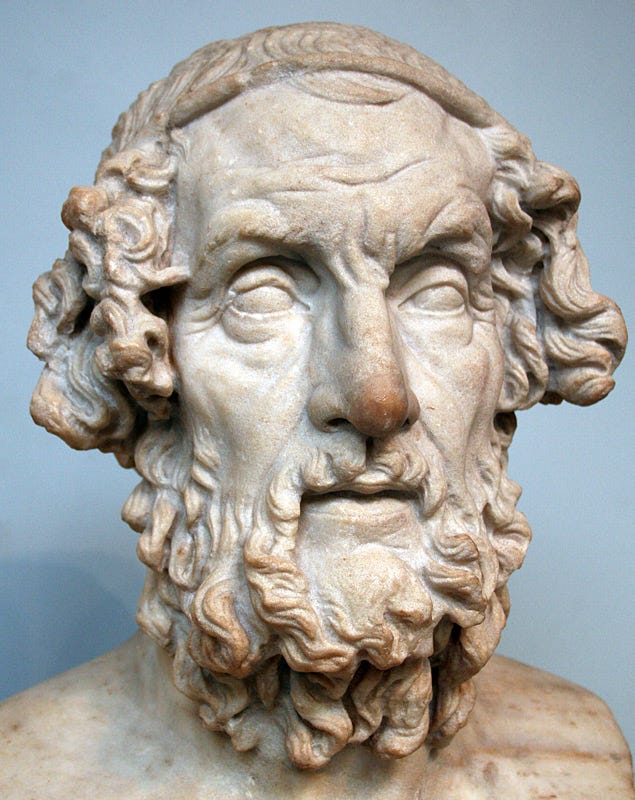
Background of the Trojan War
The story of the Trojan War begins at the wedding of Peleus, a Greek hero, and the sea nymph Thetis. All the gods were invited except for Eris, the goddess of discord. In retaliation, Eris threw a golden apple into the gathering, inscribed with the words "For the fairest."
Three goddesses—Hera, Athena, and Aphrodite—claimed the apple, and Zeus was asked to judge who was the fairest. To avoid making the decision himself, Zeus appointed Paris, the prince of Troy, as the judge. Each goddess tried to bribe Paris: Hera offered him power, Athena promised wisdom and victory in battle, and Aphrodite pledged the love of the most beautiful woman in the world, Helen of Sparta.
Paris chose Aphrodite, thus awarding her the Golden Apple. As promised, Aphrodite helped Paris win Helen's heart, despite her being married to King Menelaus of Sparta. Paris took Helen back to Troy, which led to the Achaeans launching an expedition to retrieve her, sparking the Trojan War.
The Trojan War is one of the most famous events in Greek mythology. It is traditionally dated around the 12th or 13th century BCE and was fought between the city of Troy (in modern-day Turkey) and a coalition of Greek states. Greece, as a consolidated nation-state, did not exist at the time but was a loose affiliation of several nations. Throughout Homer’s works, it is referred to as Achaea.
The conflict begins when Paris, having been promised the love of Helen by the goddess Aphrodite, takes her from Sparta back to Troy. Menelaus, enraged by the loss of his wife, calls upon other Achaean kings and heroes to join him in a war to retrieve her.
The Achaeans ultimately won through deception, using the famous Trojan Horse, a large wooden structure concealing soldiers. The Trojans, believing the horse to be a gift, brought it into the city. That night, the Achaean soldiers emerged from the horse, opened the city gates, and allowed the Achaean army to enter and destroy Troy.
The war is said to have lasted ten years, with many notable battles and heroic deeds recounted. The Iliad focuses on a short period during the final year of the war. The war's blend of mythology and history has left a lasting impact on Western literature and culture.
Role of the Gods in The Iliad
The gods play a central and dynamic role in this poem, frequently intervening in mortals’ lives and influencing the outcome of events. The gods, each with their own personalities and allegiances, often act according to personal grudges, favoritism, or divine justice, affecting both the Trojan and Achaean sides of the war.
Gods like Athena and Hera favor the Achaeans, while Apollo and Aphrodite support the Trojans. Zeus, the king of the gods, attempts to maintain a balance and often enforces the fated outcomes, though even he bends to fate’s will.
The gods' interventions shape battles, manipulate human emotions, and escalate conflicts, often undermining human efforts. While the mortal warriors possess great courage and strength, the gods' presence shows that mortal lives are subject to divine whims and fate, illustrating the larger cosmic forces at play in the Trojan War.
The Hero in Greek Myth
In Greek myth, the hero occupies a crucial role as a figure who embodies strength, bravery, and honor, often undertaking great feats or quests. Heroes are typically mortal or semi-divine figures with exceptional abilities, though they remain subject to fate and the whims of the gods. Their stories often center around overcoming monstrous adversaries, achieving impossible tasks, or facing personal trials.
However, the hero's journey is not just about physical prowess—heroes in Greek myth must also navigate complex moral and ethical dilemmas, demonstrating virtues like loyalty, sacrifice, and cunning. Figures such as Achilles, Odysseus, and Heracles are celebrated not only for their physical accomplishments but also for their endurance in the face of suffering and their ability to outwit or resist the gods' influence.
Despite their greatness, heroes are often marked by tragic flaws (hubris, anger, pride) that lead to their downfall or suffering. These flaws highlight the fragility of human nature and serve as a reminder of the limits placed on mortals by fate and the gods. Ultimately, the hero in Greek myth represents both the ideal of human potential and the inescapable reality of human limitations.
Reading Assignment for next week
We will cover Book 1. In the Fagles translation, this chapter is entitled The Rage of Achilles and covers pages 77-98. In the Wilson translation, it is called The Quarrel and covers pages 1-23.
Beyond the Bookshelf is a reader-supported publication. If you are looking for ways to support Beyond the Bookshelf, please visit my support page and see the ways you can help continue the mission of exploring the connection between life and literature.
Until next time,



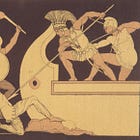
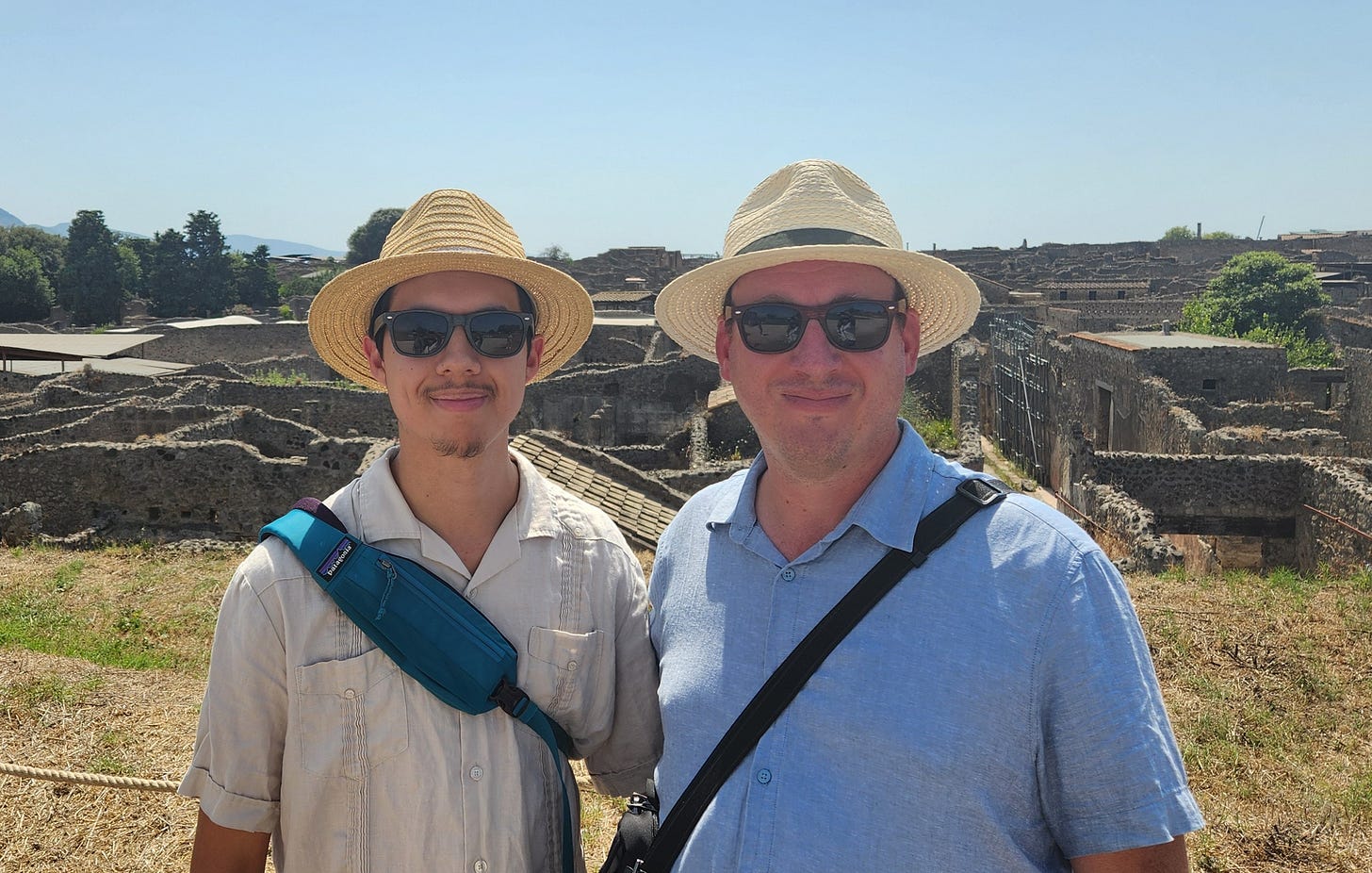







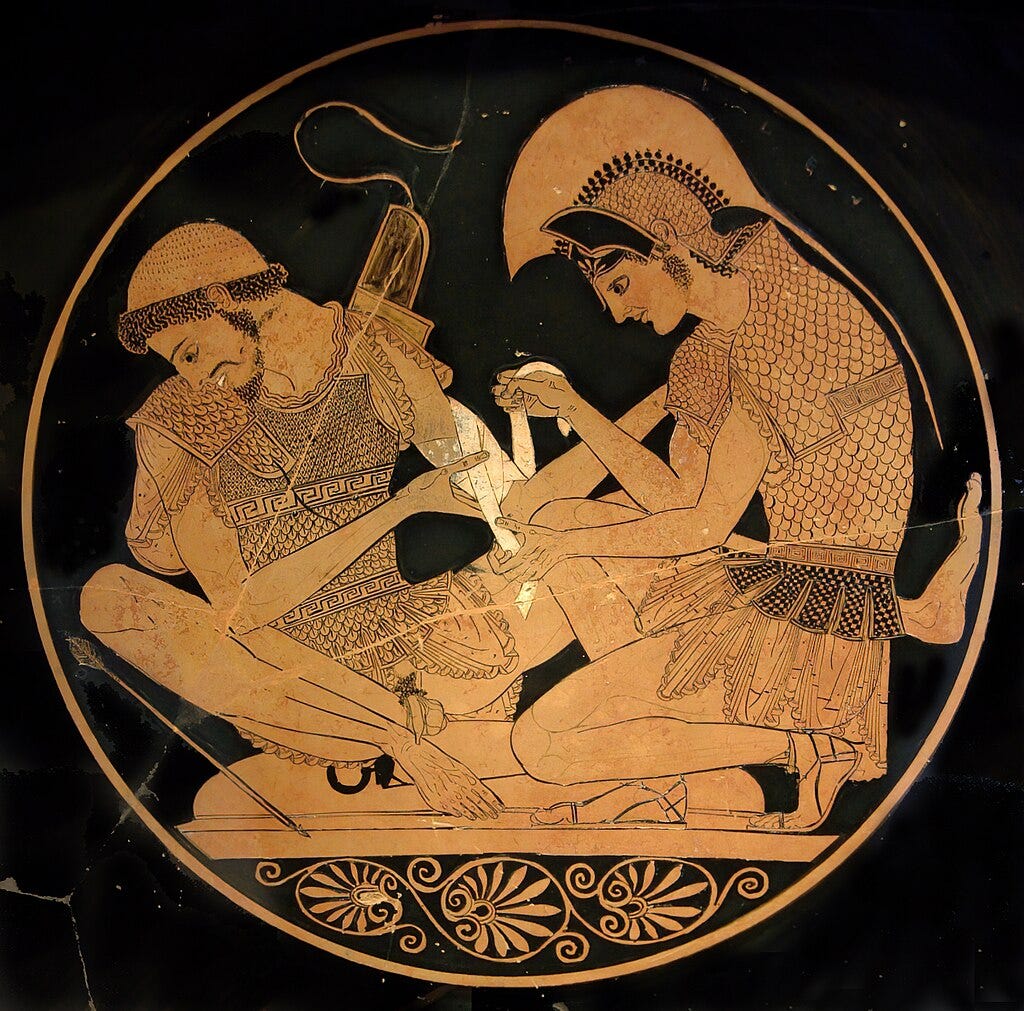


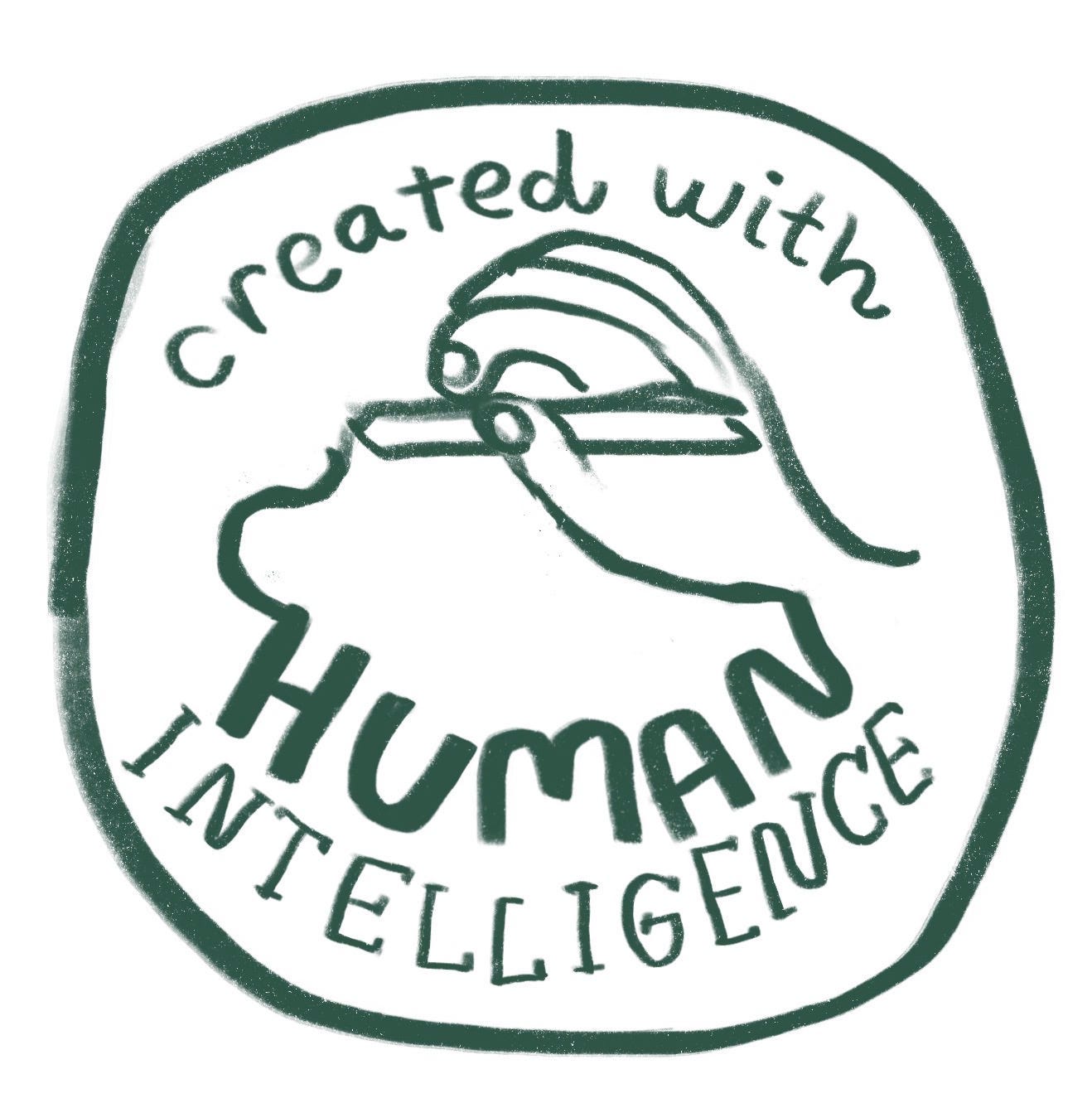
-Cracks knuckles- Who’s ready for The Catalogue of Ships?
Thanks for this introduction, Matthew, and Happy Birthday!
I’d read the Stephen Fry’s book Troy a year or so back. Your introduction helped me remember the context of the war. Odysseus is a terrific character. It was because of his idea of selecting a suitor for Helen, they all have to go to this war along with Menelaus. And then, interestingly, Odysseus pretended to be insane to get out of the war.